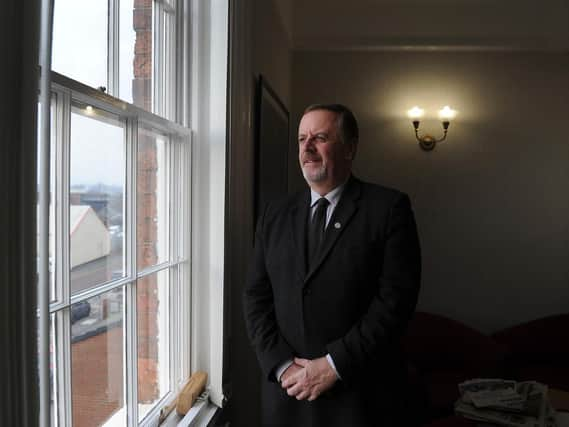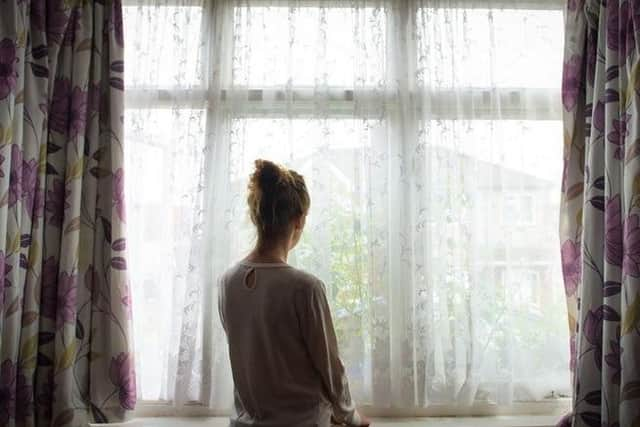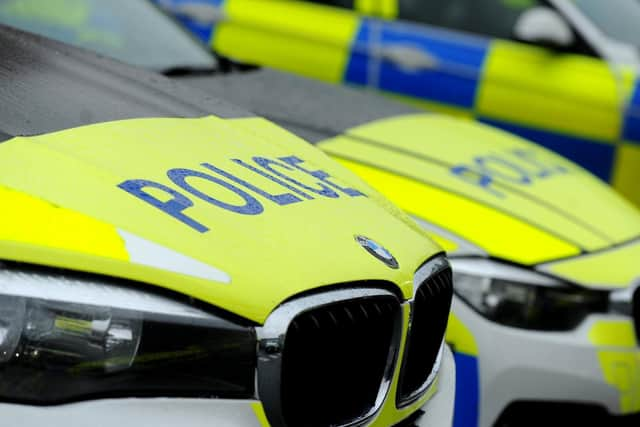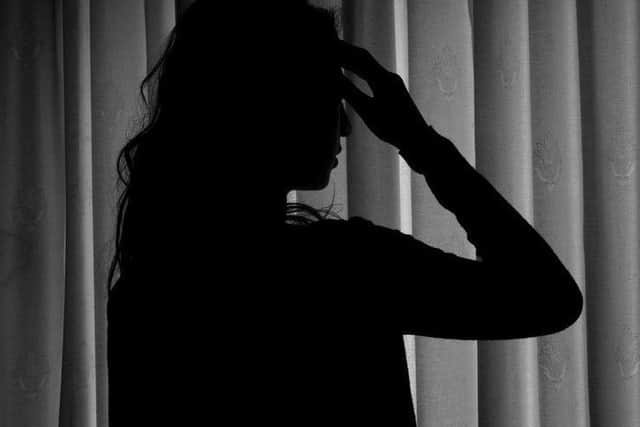Police forces across Yorkshire and North East pledge to 'weed out' modern slavery from their own supply chains


That is according to a new pledge from seven forces across the North published this week to coincide with UK Anti-Slavery Day on Sunday.
West, North and South Yorkshire police forces have joined Cleveland, Durham and Northumbria constabularies in the commitment to ensure trafficking and slavery plays no part in hotel trips, production of goods and services they incur.
Advertisement
Hide AdAdvertisement
Hide AdIt comes after research published earlier this year by academics at the University of York highlighted numerous companies and organisations, including some household names and retail giants, which did not have up-to-date or in-depth Modern Slavery Statements on their websites, as required by the 2015 Modern Slavery Act.


Speaking to The Yorkshire Post, West Yorkshire Police and Crime Commissioner Mark Burns-Williamson - the country's lead for modern slavery - said: "As police and law enforcement, if we can set an example in this way, we can send a message of intent to all sectors that we all need to be making sure nobody has been exploited to bring us the services we use day by day.
"This is about doing the right thing."
An estimated 140,000 people in the UK are tied up in the web of slavery, with the crime taking many forms from offenders taking the guise of legitimate employment agencies and forcing victims to work in miserable conditions, to sex trafficking and county lines drug dealing.
Altogether, the seven forces have a non-pay spend of £250m, operate 2,941 vehicles and work with 3,000 suppliers where they spend £50,000 annually.
Advertisement
Hide AdAdvertisement
Hide Ad

Mr Burns-Williamson said the onus was on them to ensure slavery has paid no role in things such as the production of their police vehicles and uniforms, the hotel and catering services used and manufacturing of equipment they use and even those cleaning their offices and police stations.
The report published today (Friday) said: "You probably see people trapped in slavery on a regular basis but do not recognise it. It might be someone working in a private home on your street, the man working in the car wash in town, or the cleaner who empties your office bin every night.
"Forced labour is the most common form of slavery in the UK, fuelled by society’s demands for cheap products and services."
Mr Burns-Williamson added that the financial pressures faced by companies and organisations during the Covid-19 pandemic was not an excuse to let standards slip when it came to making sure they were not unwittingly allowing modern slavery and trafficking to seep into their supply chains.
Advertisement
Hide AdAdvertisement
Hide Ad

This could be in the form of criminals taking the guise of legitimate employment agencies forcing people to work for them and taking the wages for themselves, with forced labour being "the most common form of slavery in the UK", according to the report.
"Why push for legislation against modern slavery if it's going to be pushed to the side?" Mr Burns-Williamson added.
"There is a lot of work now dedicated to rooting out and tackling this issue, but it's a constant battle to keep the public aware that this is happening all around us."
Anyone who suspects someone may be being exploited is urged to contact the Modern Slavery Helpline, or to contact their local police force on 101 and 999 in emergencies.
Support The Yorkshire Post and become a subscriber today.
Advertisement
Hide AdAdvertisement
Hide AdYour subscription will help us to continue to bring quality news to the people of Yorkshire. In return, you'll see fewer ads on site, get free access to our app and receive exclusive members-only offers.
So, please - if you can - pay for our work. Just £5 per month is the starting point. If you think that which we are trying to achieve is worth more, you can pay us what you think we are worth. By doing so, you will be investing in something that is becoming increasingly rare. Independent journalism that cares less about right and left and more about right and wrong. Journalism you can trust.
Thank you
James Mitchinson (Editor)